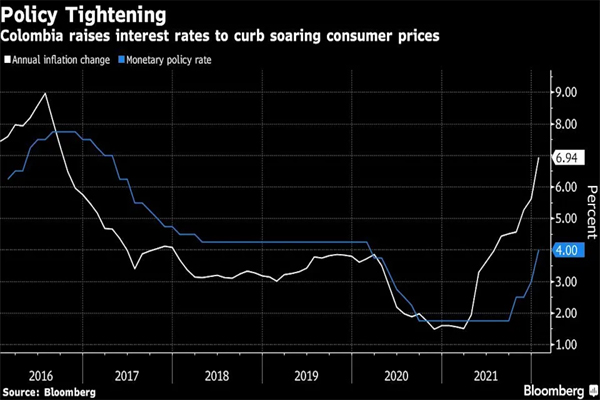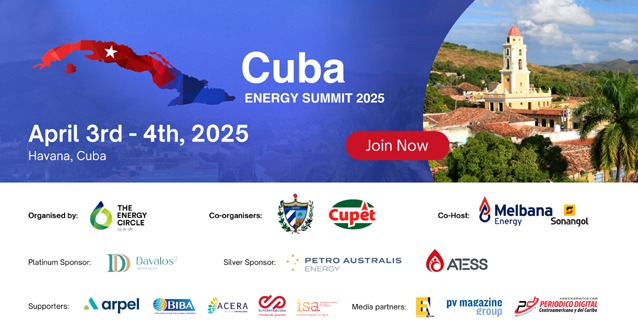
By Oscar Medina/Bloomberg News
BOGOTA
EnergiesNet.com 02 08 2022
Colombia launched a series of measures seeking to curb the fastest inflation in five years, largely from increases in food prices, the nation’s finance minister said.
Minister Jose Manuel Restrepo announced a package of measures after inflation accelerated in January, more than doubling its 3% target. Restrepo spoke on Sunday alongside the agriculture and transport ministers, among other high-level officials, after a meeting with President Ivan Duque, according to a video from the administration.
- Central bank will continue its process of normalizing monetary policy
- Nation will cut costs of agricultural inputs
- Government will reduce tariffs on agricultural imports
- Government will work with producers to increase food supply
- Transport Ministry will seek to improve logistics on main Colombian ports with lower costs
- Government will provide additional credit lines and insurance for food producers
- One million additional families will be included in government subsidies
The Andean nation’s inflation rate surged to 6.94% in January, its highest level since September 2016, the national statistics agency said Saturday. That’s more than was forecast by all 18 analysts surveyed by Bloomberg, whose median estimate was 6.39%. Food prices rose 20% from a year earlier. Prices increased 1.67% from December, the highest monthly rise since 2001.
“Almost half of inflation is caused by food price increases and measures such as tariffs may have an impact but in the medium term,” Camilo Perez, head of research at Banco de Bogota said by phone. “Prices for agricultural inputs are high globally and the peso is very weak, so even with lower tariffs, costs associated to food will remain high.”
Andres Pardo, an analyst at XP Investments said in an note that after the upside surprise in inflation, he expects Colombia’s central bank to speed up its tightening cycle. He now forecasts policy makers will raise borrowing costs by 1.5 percentage points to 5.5% at the March meeting, from a previous estimate of one percentage point. And given that there is no monetary policy meeting scheduled for February, he doesn’t rule out the central bank calling for an extraordinary meeting this month to front-load the tightening cycle.
The central bank has raised borrowing costs 2.25 percentage points since September to 4%, and last month surprised analysts with a bigger-than-expected increase as it tries to get on top of surging prices.
Inflation has jumped above target across all major Latin American economies, as well as in other emerging markets and in rich nations, as global demand rebounds before supply chains are fully recovered from the pandemic, and businesses pass on higher global food and energy costs to customers.
bloomberg,com 02 07 2022












